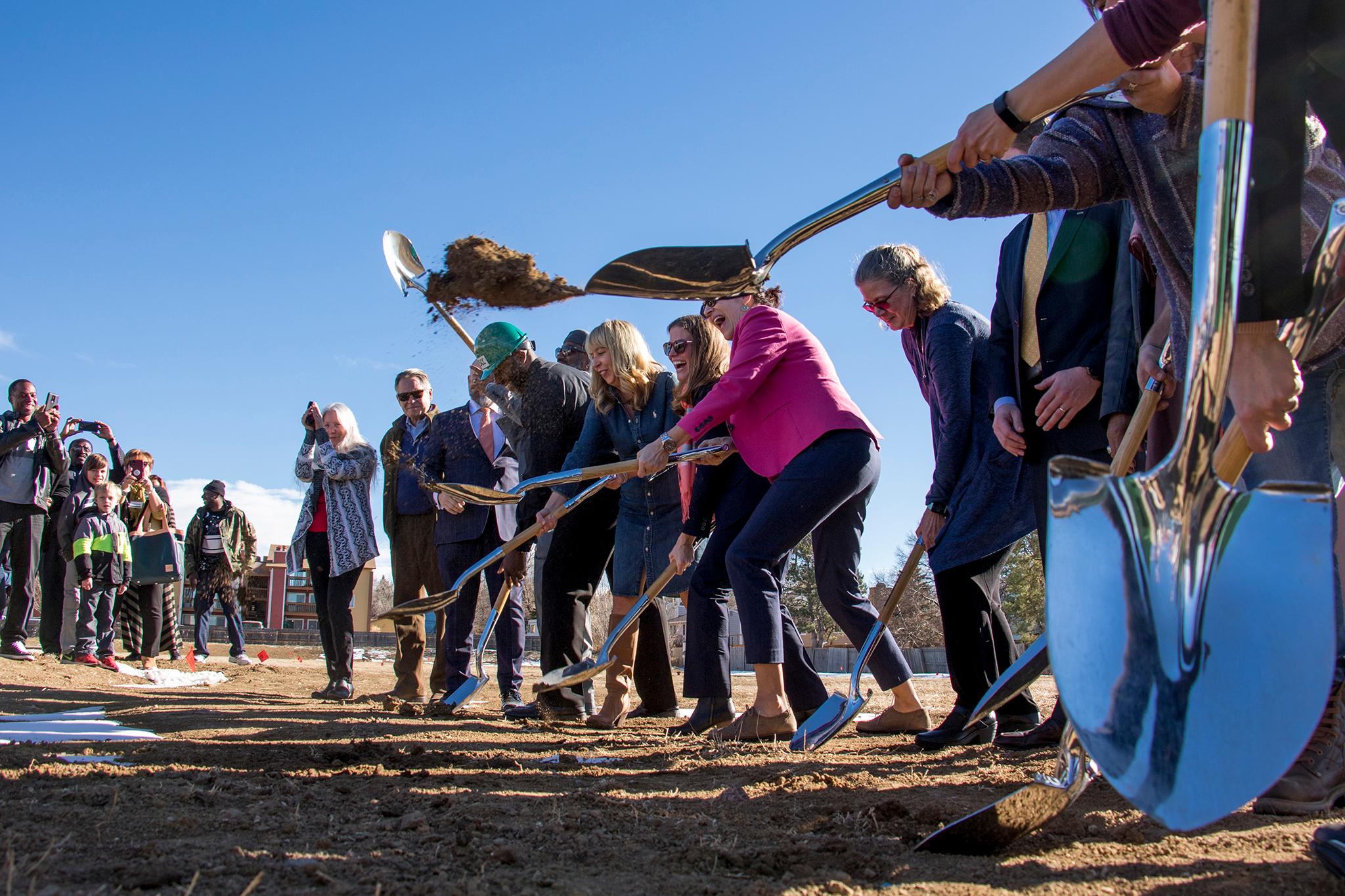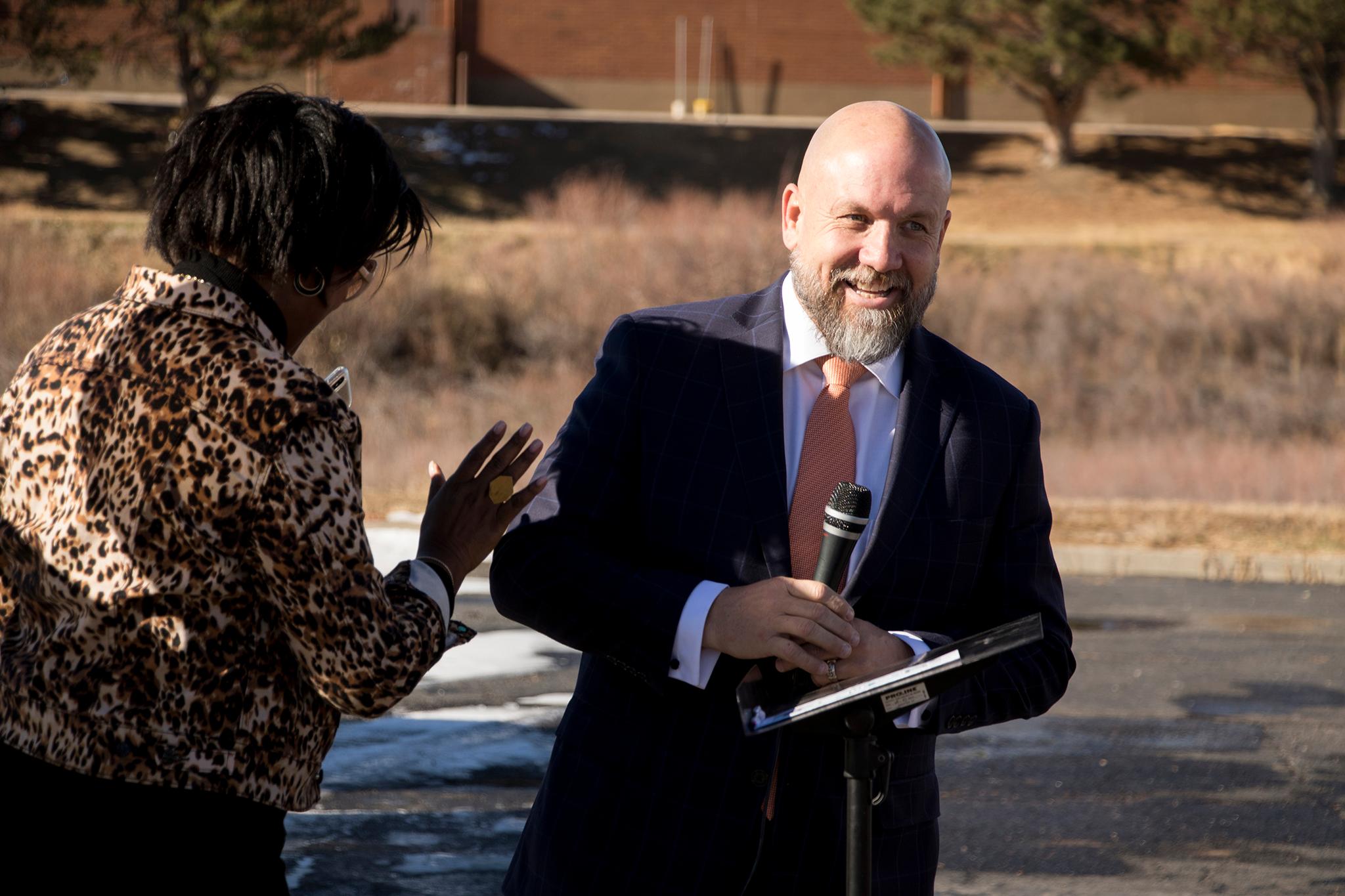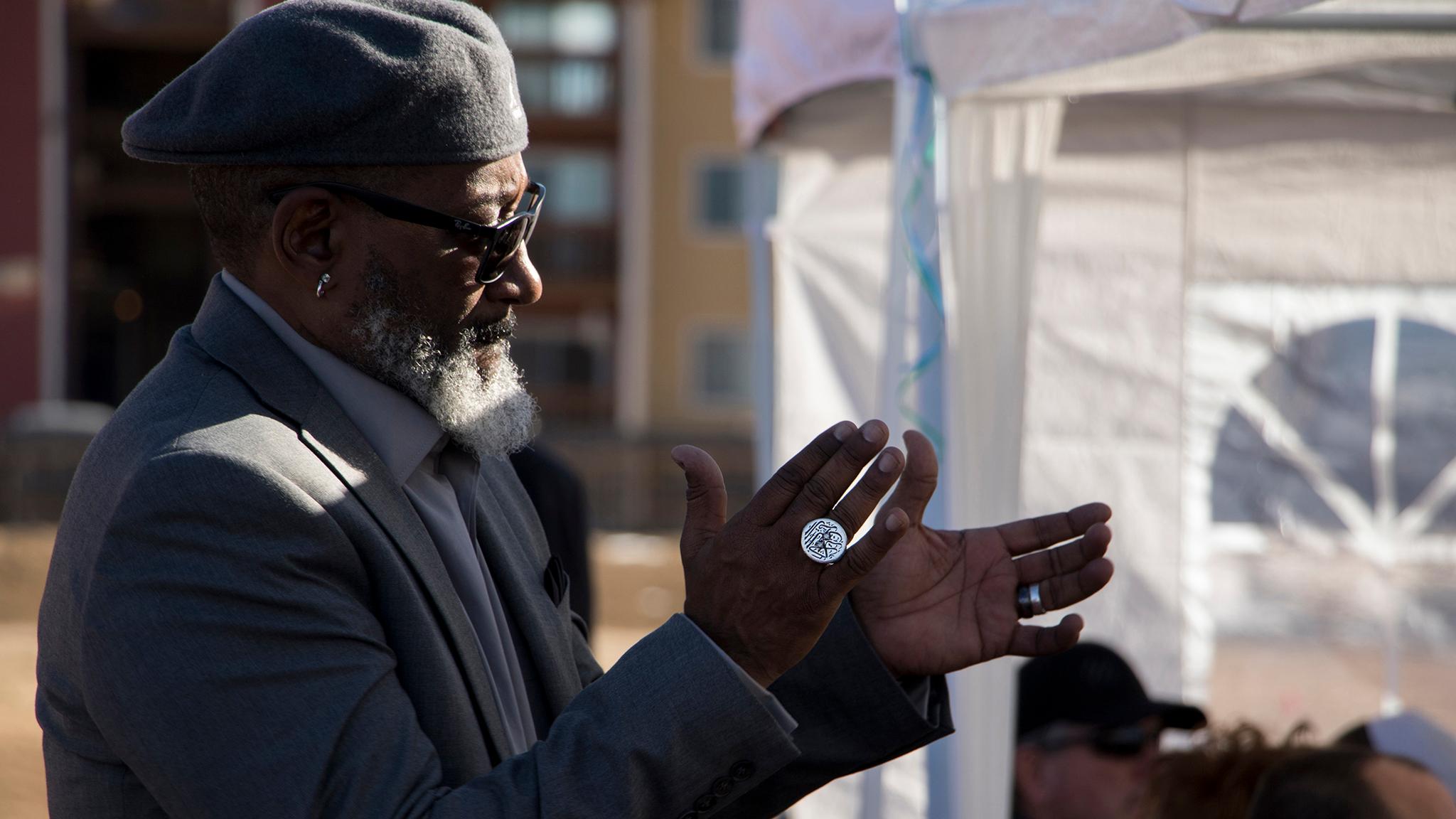As he took in the brilliant skies overhead and the buoyant crowd before him at the groundbreaking ceremony for the supportive housing project whose development he has spearheaded, Hassan Latif thought back on another new start.
"Thirteen years ago this morning, I walked out of prison for the first time in eighteen years," Latif said Friday. "It was a different morning. It was cold and sleeting in Canyon City."
Latif went on to become a drug addiction counselor and later founded Aurora's Second Chance Center to provide job training, mentoring and other support to help people who were once incarcerated find their footing, as he has.
Landlords often turn away people who have been imprisoned. Latif has long dreamed of providing housing and the stability that entails to the formerly incarcerated, who will be among other vulnerable people offered homes and support at Providence at the Heights, known as PATH. The 50-unit, low-income, permanent supportive housing complex is expected to open in early 2020 behind Elevation Christian Church on Alameda Parkway, not far from the Aurora Municipal Center.
Leanne Wheeler, Latif's project manager, said the timing of Friday's ceremony was dictated by myriad events in a complex development. That it fell on an important anniversary in Latif's life was "truly divine," she said.

Scott Bloyer, Elevation's pastor, also spoke Friday at the ceremony punctuated by vigorous applause, the occasional whoop and even a dance step or two. Bloyer said his church had been looking for ways to use vacant land behind its parking lot to benefit the community.
"We were thinking, like, a park or something," he said.
The church embraced Latif's proposal and is now planning to open a counseling center that will be open to PATH and other Aurora residents.
"We are excited about the partnerships we get to have," Bloyer said.

PATH was made possible by partnerships, including with BlueLine Development, which worked with the St. Francis Center and St. John's Cathedral on Capitol Hill's St. Francis Apartments, supportive housing for people experiencing homelessness. Latif met Zoe LeBeau, a supportive housing developer who has worked across the country, at an event for St. Francis similar to Friday's PATH ceremony. Now LeBeau is consulting on his project. Among other collaborators are the National Equity Fund, which invested $10.8 million in PATH; the Colorado Housing and Finance Authority, or CHFA, which granted the low-income housing tax credits that made the project possible; and the state Division of Housing, which will provide housing vouchers to residents.
Tasha Weaver said the CHFA tax credit program she manages is competitive. To have a chance, a proposal has "to have a team that has passion and grit and courage to move a project forward.
"The thing that stood out about this project is the passion we saw in Mr. Hassan's eyes."
People living near the church had protested, expressing concerns about how PATH would be managed and what it might mean for parking and home values in a neighborhood of sprawling low-rise apartment complexes and modest single-family homes. Aurora's planning commission had rejected the proposal. The commission was overruled by City Council, several of whose members attended Friday's ceremony.
Katie Symons, who works with housing consultant LeBeau, said Second Chance and BlueLine have been holding community meetings in hopes of working out a good neighbor agreement that would include ensuring people with concerns would always be able to reach PATH managers.
"Communication is the main part of the agreement," Symons said.
Latif said he hoped that in a few years, neighbors would not remember that they once had concerns.
"We are not going to let you down," he said to his supporters Friday. "We are not going to disappoint you."

Latif said the counseling and other services PATH residents will find will be similar to the support he had even before he left prison. He thanked Tania Garcia, who ran a Department of Corrections pre-release program he said helped him imagine a better future.
On that last day at the prison, he wanted to say farewell to Garcia. Unusually, she was late for work. He found himself hoping the bus scheduled to take him away would be late. When Garcia arrived, he was too overcome by tears to say much. She offered a last bit of advice.
"She said, 'Just be kind to people.'"
He understood that that was how he could repay her. Her counsel, he said, has stayed with him in his work with Second Chance and now with PATH.
"That always rang in my head."













